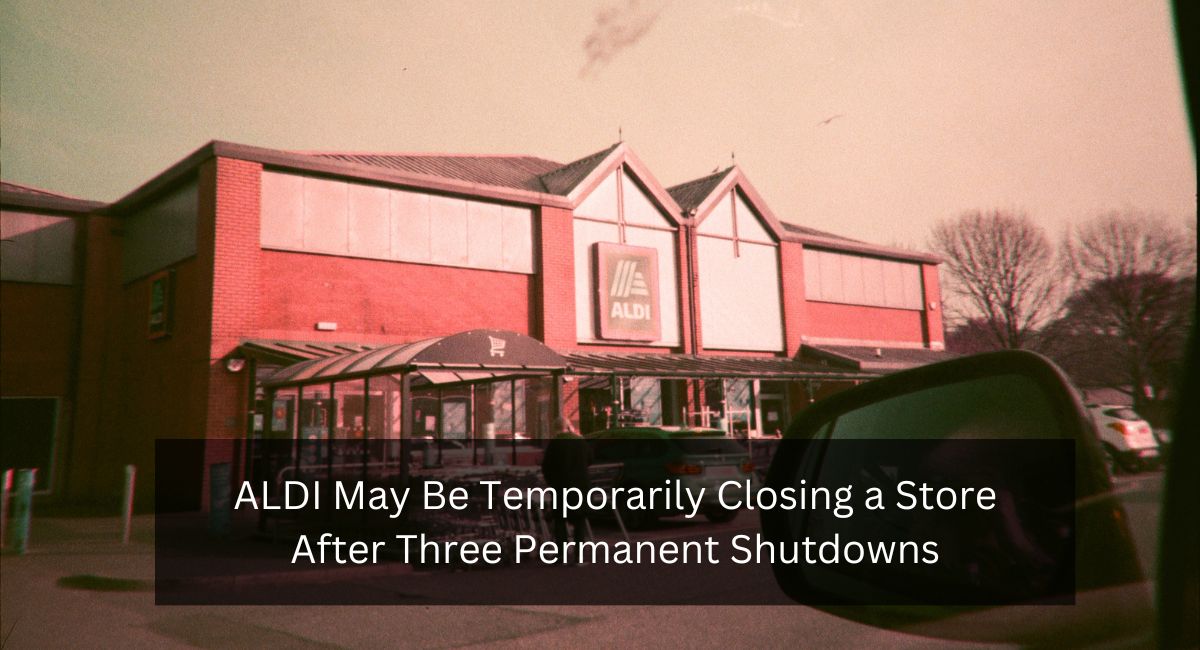In the dynamic landscape of retail, ALDI, a popular grocery chain known for its affordability and efficiency, has been making headlines with its recent decisions to permanently shut down three of its stores and the potential temporary closure of another.
These moves, while initially concerning for loyal customers, actually reflect ALDI’s strategic agility in adapting to changing market conditions and consumer behaviors. This blog post explores the implications of these closures and what they signify for ALDI’s future and its customers.
Understanding ALDI’s Business Model
To appreciate the significance of these closures, it’s crucial to understand ALDI’s business model. Renowned for its cost-efficiency, ALDI operates with a unique approach – offering a limited selection of private-label items, a straightforward store layout, and a lean staffing model.
This model has allowed ALDI to offer lower prices compared to its competitors, earning it a dedicated customer base and a significant position in the grocery sector.
The Three Permanent Shutdowns
ALDI’s decision to permanently close three of its stores is a move that, while surprising, aligns with the company’s commitment to efficiency and customer experience. In the retail world, store closures are often a result of several factors: underperformance, unfavorable lease agreements, or strategic realignment.
For ALDI, these closures may signify a redirection of resources to more profitable locations or an investment in other areas of its business, such as e-commerce or store renovations.
The Potential Temporary Closure
The potential temporary closure of another ALDI store adds another layer to the company’s strategic planning. Temporary closures are often employed for various reasons, such as remodeling, addressing safety concerns, or reevaluating the store’s alignment with the company’s goals.
For ALDI, this move could be seen as an effort to enhance the shopping experience, adapt to local market changes, or integrate more modern features into the store.
Impact on Customers and Employees
Store closures, whether permanent or temporary, inevitably affect customers and employees. Regular shoppers might have to adjust their routines and find alternative shopping destinations. For employees, closures can lead to uncertainty and potential job displacement. However, ALDI has a reputation for managing such transitions responsibly, often offering transfer options to employees and clear communication to customers.
Community and Economic Implications
Beyond individual shoppers and employees, these closures can have broader community and economic implications. Local economies can feel the impact, particularly in areas where grocery options are limited.
However, ALDI’s strategic decisions also reflect broader trends in the retail sector, such as shifting consumer preferences and the rise of online shopping, which can lead to positive long-term outcomes for communities.
ALDI’s Future Strategy
These closures should be viewed in the context of ALDI’s overall growth strategy. The company has been expanding rapidly in the U.S., opening new stores and entering new markets.
This expansion, coupled with an increasing focus on e-commerce and sustainability, suggests that ALDI is evolving to meet future challenges and opportunities in the retail sector.
Embracing Change in Retail
ALDI’s recent moves highlight the ever-changing nature of the retail industry. Companies must continually adapt to remain competitive, whether that means closing underperforming stores, renovating existing ones, or exploring new business avenues.
ALDI’s actions demonstrate a proactive approach to business management, ensuring that its operations align with market demands and consumer needs.
Conclusion
The temporary closure of an ALDI store, following the permanent shutdown of three others, might initially raise concerns among its loyal customer base. However, these decisions are part of ALDI’s larger strategy to optimize its store network and enhance its overall customer experience. They reflect the company’s agility and willingness to adapt in a rapidly evolving retail landscape.
For customers and communities, this could mean better shopping experiences and more modernized stores in the future. As ALDI continues to grow and evolve, these strategic closures and openings will likely remain a part of its approach to maintaining its position as a leading grocery retailer.
In the end, ALDI’s recent actions serve as a reminder of the importance of flexibility and adaptation in the ever-changing world of retail.

